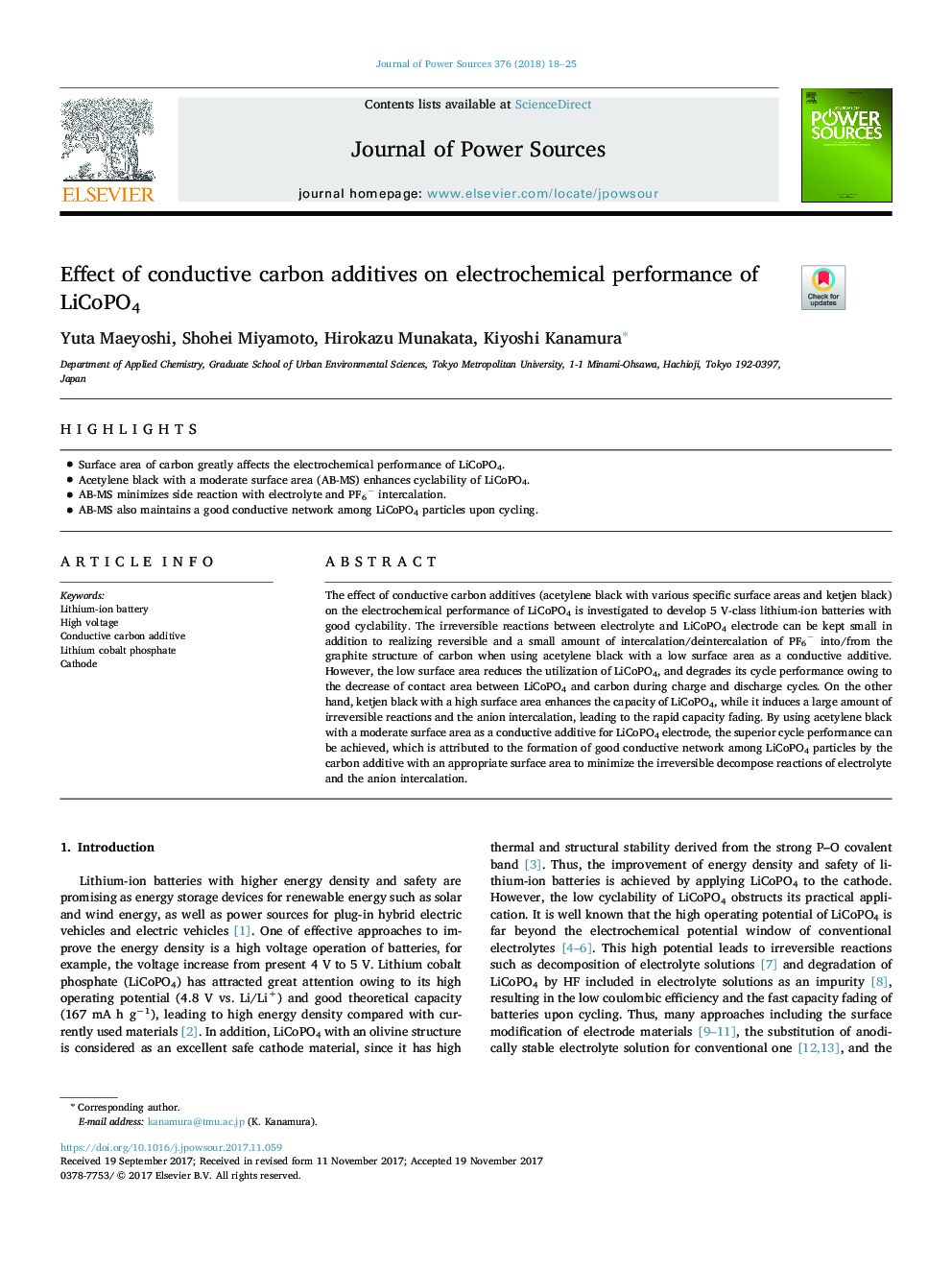| Article ID | Journal | Published Year | Pages | File Type |
|---|---|---|---|---|
| 7725903 | Journal of Power Sources | 2018 | 8 Pages |
Abstract
The effect of conductive carbon additives (acetylene black with various specific surface areas and ketjen black) on the electrochemical performance of LiCoPO4 is investigated to develop 5Â V-class lithium-ion batteries with good cyclability. The irreversible reactions between electrolyte and LiCoPO4 electrode can be kept small in addition to realizing reversible and a small amount of intercalation/deintercalation of PF6â into/from the graphite structure of carbon when using acetylene black with a low surface area as a conductive additive. However, the low surface area reduces the utilization of LiCoPO4, and degrades its cycle performance owing to the decrease of contact area between LiCoPO4 and carbon during charge and discharge cycles. On the other hand, ketjen black with a high surface area enhances the capacity of LiCoPO4, while it induces a large amount of irreversible reactions and the anion intercalation, leading to the rapid capacity fading. By using acetylene black with a moderate surface area as a conductive additive for LiCoPO4 electrode, the superior cycle performance can be achieved, which is attributed to the formation of good conductive network among LiCoPO4 particles by the carbon additive with an appropriate surface area to minimize the irreversible decompose reactions of electrolyte and the anion intercalation.
Related Topics
Physical Sciences and Engineering
Chemistry
Electrochemistry
Authors
Yuta Maeyoshi, Shohei Miyamoto, Hirokazu Munakata, Kiyoshi Kanamura,
